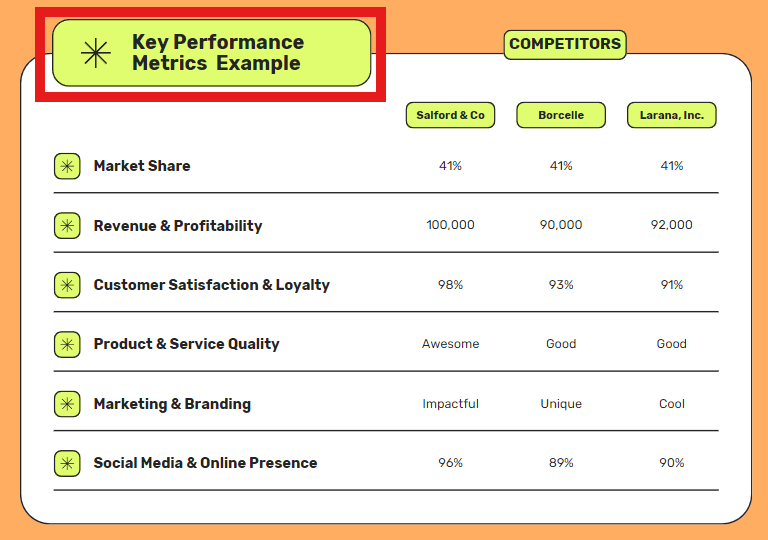How to ask for a raise 💸 💵 can be a daunting question, but with the right approach, it can lead to a successful outcome. If you’re ready to take the next step in your career, it’s crucial to prepare effectively and present a strong case. In this blog post, we’ll walk you through the essential steps to confidently and professionally request a raise, including understanding your worth, researching salary trends, and crafting a compelling pitch. With these strategies, you’ll be well-equipped to make a persuasive case and increase your chances of success.
Table of Contents
Understand Why You Deserve a Raise
When preparing to ask for a raise, the first step is to understand why you deserve one. This foundational step is crucial as it helps you build a strong, evidence-based case for your request. Here’s how to assess your value and contributions effectively.
Assess Your Performance and Achievements
Start by evaluating your job performance and identifying your key achievements. Consider the following:
- Have you consistently met or exceeded your targets?
- Have you taken on additional responsibilities or projects?
- Have you received positive feedback from your colleagues or supervisors?
Documenting these accomplishments is essential. It provides concrete examples to support your request and demonstrates your value to the company.

Identify Your Unique Contributions
Think about the unique skills and qualities you bring to the team. Are there specific areas where you’ve made a significant impact? Examples might include:
- Streamlining processes that saved the company time and money.
- Leading a successful project that boosted revenue or improved efficiency.
- Mentoring new employees and enhancing team performance.
Highlighting these contributions shows that you’re not just fulfilling your role but going above and beyond to benefit the organization.
Collect Feedback and Testimonials
Gather feedback from colleagues, supervisors, and clients to reinforce your case. Positive testimonials can be powerful evidence of your contributions and impact. Request formal feedback if available, or collect informal comments that highlight your strengths and achievements.
Quantify Your Contributions
Whenever possible, quantify your achievements. Numbers and statistics can make your case more compelling. For instance:
- Increased sales by 15% in the last quarter.
- Reduced customer complaints by 20%.
- Implemented a new system that cut costs by 10%.
These quantifiable results provide clear evidence of your impact and help justify your request for a raise.
Align Your Achievements with Company Goals
Show how your work aligns with and supports the company’s goals and objectives. Demonstrating that your contributions help advance the company’s mission makes a strong case for why you deserve a raise. For example:
- If the company values innovation, highlight your role in developing new products or services.
- If customer satisfaction is a priority, emphasize your success in improving customer experience.
By thoroughly understanding and articulating why you deserve a raise, you set a strong foundation for your request. This clarity not only boosts your confidence but also makes it easier for your manager to see the value you bring to the organization.
Research Salary Trends and Standards
Before asking for a raise, it’s essential to research salary trends and standards in your industry. This knowledge will help you determine a realistic and competitive salary range for your role, providing a solid foundation for your request.
Use Online Salary Tools
Leverage online salary tools to gather data on salary ranges for your position. Websites like Glassdoor, Payscale, and Salary.com offer detailed salary information based on job title, location, and experience level. These tools allow you to compare your current salary with industry standards and identify a reasonable range to aim for.
Analyze Industry Reports
Industry reports and surveys provide valuable insights into salary trends and standards. Professional associations and industry publications often release annual salary reports that detail compensation trends within specific fields. Reviewing these reports can help you understand the broader context of salary standards in your industry.
Consider Geographic Variations
Salaries can vary significantly based on geographic location. Research the cost of living and salary averages in your area compared to other regions. This information is crucial, especially if you work in a location with a high cost of living. Use tools like the Cost of Living Index to make accurate comparisons.
Factor in Experience and Education
Your experience and educational background play a significant role in determining your market value. Compare salaries for individuals with similar experience levels and educational qualifications. This comparison will help you understand where you stand and what salary range is appropriate for your profile.
Network with Industry Peers
Networking with colleagues and industry peers can provide firsthand insights into current salary standards. Attend industry conferences, join professional associations, and participate in online forums to connect with others in your field. These conversations can offer a realistic view of what others in similar roles are earning.
Review Your Company’s Salary Structure
Understand your company’s salary structure and policies. Many organizations have established pay scales and guidelines for raises. Familiarize yourself with these policies to ensure your request aligns with company standards. If possible, speak with HR to gain clarity on how raises are typically determined and awarded.
By researching salary trends and standards, you equip yourself with the necessary information to make a compelling case for your raise. This research not only validates your request but also demonstrates your professionalism and preparedness.
Prepare a Compelling Case
When asking for a raise, preparing a compelling case is essential. This involves presenting clear, evidence-based arguments that highlight your contributions and demonstrate why you deserve a raise. Here’s how to create a persuasive case.
Document Your Achievements
Start by meticulously documenting your achievements. Collect evidence that showcases your contributions and the value you bring to the company. Examples include:
- Meeting or exceeding sales targets
- Successfully completing significant projects
- Receiving positive feedback from clients or colleagues
Use specific examples and metrics to quantify your achievements. Concrete data makes your case stronger and more convincing.
Create a Professional Presentation
Organize your documented achievements into a professional presentation. This can be a PowerPoint deck, a detailed report, or a one-page summary. Ensure that your presentation is clear, concise, and visually appealing. Use bullet points, charts, and graphs to highlight key points and make your data easy to understand.
Highlight Your Unique Value
Focus on what sets you apart from your colleagues. Highlight your unique skills, expertise, and qualities that contribute to the success of your team and the organization. For example:
- Specialized skills or certifications
- Leadership roles or mentorship
- Innovative solutions you’ve implemented
Demonstrating your unique value reinforces why you deserve a raise and why your contributions are vital to the company.
Align Your Case with Company Goals
Show how your work aligns with the company’s goals and objectives. Explain how your contributions have helped advance the organization’s mission and vision. This alignment makes it clear that your success is tied to the company’s success, strengthening your argument for a raise.
Prepare for Potential Objections
Anticipate potential objections your manager might have and prepare responses. Common objections include budget constraints, timing issues, or a lack of awareness of your contributions. Have data and examples ready to address these concerns. This preparation shows that you’ve thought through your request and are ready to engage in a constructive discussion.
Practice Your Delivery
Rehearse your pitch to ensure you deliver it confidently and professionally. Practice with a friend, family member, or mentor who can provide feedback. Focus on maintaining a positive and assertive tone, and be ready to discuss your points clearly and calmly.
By preparing a compelling case, you increase your chances of successfully convincing your manager that you deserve a raise. Your thorough preparation, clear presentation, and confident delivery will demonstrate your professionalism and the value you bring to the organization.
Choose the Right Time
Choosing the right time to ask for a raise is crucial for a successful outcome. Timing can significantly impact the response you receive. Here’s how to identify the optimal moment to make your request.
Consider Company Financial Health
The company’s financial health plays a significant role in the timing of your request. If the company is doing well, with increased profits and strong financial reports, it’s a good time to ask for a raise. Conversely, if the company is facing financial difficulties, layoffs, or budget cuts, it might be better to wait until the situation improves.

Align with Performance Reviews
Performance reviews are a natural time to discuss salary adjustments. These reviews provide an opportunity to highlight your achievements and discuss your future with the company. If your performance review is approaching, plan to bring up your request during this meeting.
Leverage Personal Milestones
Personal milestones, such as the anniversary of your hire date, can be an appropriate time to ask for a raise. These milestones are opportunities to reflect on your growth and contributions over the past year or more. Use this occasion to remind your employer of your value and discuss your compensation.
Choose a Calm, Positive Period
Timing your request during a calm, positive period in the workplace can increase your chances of success. Avoid asking for a raise during high-stress periods, such as major project deadlines or organizational changes. Instead, look for a time when things are running smoothly, and your manager is likely to be in a more receptive mood.
Pay Attention to Your Manager’s Schedule
Your manager’s schedule and mood can influence the outcome of your request. Avoid times when your manager is particularly busy, stressed, or preoccupied with other issues. Instead, choose a time when they are more relaxed and available to have a thoughtful discussion.
Consider Recent Achievements
Timing your request shortly after a significant achievement can be advantageous. If you’ve recently completed a major project, secured a big deal, or received praise for your work, leverage this success when asking for a raise. Your recent accomplishments will be fresh in your manager’s mind, making your request more compelling.
By carefully choosing the right time to ask for a raise, you maximize the likelihood of a positive response. Consider the company’s financial health, performance review cycles, personal milestones, workplace atmosphere, your manager’s schedule, and recent achievements to identify the optimal moment for your request.
Practice Your Pitch
Practicing your pitch is a crucial step when preparing to ask for a raise. A well-rehearsed pitch ensures you communicate your points clearly and confidently, increasing your chances of a successful outcome. Here’s how to effectively practice your pitch.
Write Down Your Key Points
Start by writing down the key points you want to cover during your conversation. These should include:
- Specific achievements and contributions
- Why you deserve a raise
- The amount or percentage increase you’re seeking
- How your raise aligns with market standards
Having a clear outline helps you stay focused and ensures you don’t forget any important details.
Practice Aloud
Practice delivering your pitch aloud multiple times. This helps you get comfortable with the language and flow of your presentation. Pay attention to your tone, pace, and clarity. Aim for a confident and assertive, yet respectful, delivery.
Role-Play Scenarios
Role-playing scenarios with a friend, family member, or mentor can be incredibly helpful. Have them act as your manager and practice the conversation. This allows you to experience different responses and questions, helping you prepare for various outcomes.
Anticipate Questions and Objections
Think about potential questions and objections your manager might have and prepare your responses. Common questions might include:
- Why do you believe you deserve this raise?
- How did you come up with the amount you’re requesting?
- What if we don’t have the budget right now?
Having well-thought-out answers ready will help you handle the conversation smoothly.
Use Positive Body Language
When practicing, pay attention to your body language. Maintain eye contact, sit or stand up straight, and use open gestures. Positive body language can reinforce your confidence and make a strong impression during the actual conversation.
Record Yourself
Recording yourself while practicing your pitch can provide valuable insights. Listen to the recording to identify areas where you can improve. Pay attention to your tone, clarity, and any filler words you might be using. This self-assessment helps you refine your delivery.
Get Feedback
Seek feedback from someone you trust, such as a mentor or a colleague. They can provide constructive criticism and suggest improvements. Use this feedback to refine your pitch and make any necessary adjustments.
By practicing your pitch thoroughly, you ensure that you are well-prepared and confident when asking for a raise. Writing down key points, role-playing scenarios, anticipating questions, using positive body language, recording yourself, and seeking feedback are all effective strategies to refine your pitch and increase your chances of success.
Have a Professional Conversation
Having a professional conversation when asking for a raise is key to presenting your case effectively and respectfully. This ensures that your request is taken seriously and increases the likelihood of a positive outcome. Here’s how to conduct this important discussion.
Schedule a Dedicated Meeting
Start by scheduling a dedicated meeting with your manager to discuss your raise. Avoid bringing up the topic in passing or during a casual conversation. Request a formal meeting to show that you take the matter seriously and respect your manager’s time.
Be Prepared and Organized
Come to the meeting well-prepared and organized. Bring all the necessary documentation, such as:
- Your list of achievements and contributions
- Research on salary trends and standards
- Any supporting materials or presentations
Being organized demonstrates your professionalism and commitment.
Use Clear and Confident Language
When discussing your request, use clear and confident language. Start by briefly summarizing your key points:
- Your contributions and achievements
- Why you believe you deserve a raise
- The amount or percentage increase you’re seeking
Be specific and concise to make your case compelling.
Maintain a Positive Tone
Maintain a positive and respectful tone throughout the conversation. Approach the discussion with a mindset of collaboration rather than confrontation. Express appreciation for the opportunities you’ve had and emphasize your enthusiasm for continuing to contribute to the company.
Listen Actively
Active listening is crucial during this conversation. Pay attention to your manager’s responses and show that you value their input. Avoid interrupting and take notes if necessary. This shows respect and helps you address any concerns they may have.
Address Objections Calmly
If your manager raises objections or concerns, address them calmly and professionally. Use the preparation you did earlier to respond to questions and objections effectively. Be open to discussing alternatives if a raise isn’t immediately possible, such as setting future goals or discussing other forms of compensation.
End on a Positive Note
Conclude the meeting on a positive note, regardless of the outcome. Thank your manager for their time and consideration. Reiterate your commitment to the company and your enthusiasm for continuing to contribute. This leaves a lasting positive impression and keeps the door open for future discussions.
By having a professional conversation when asking for a raise, you demonstrate your seriousness and respect for the process. Scheduling a dedicated meeting, being prepared and organized, using clear and confident language, maintaining a positive tone, listening actively, addressing objections calmly, and ending on a positive note are all crucial steps to ensure a successful discussion.
Follow Up and Plan for the Future
Following up and planning for the future are essential steps after asking for a raise. These actions ensure that your efforts are acknowledged and help you stay on track for achieving your career goals. Here’s how to effectively follow up and plan your next steps.
Send a Thank-You Note
Immediately after your meeting, send a thank-you note to your manager. Express your gratitude for their time and consideration. This reinforces your professionalism and leaves a positive impression.

Clarify Next Steps
If your raise request is approved, ask for details on the next steps. Clarify when the raise will take effect and how it will be reflected in your paychecks. Understanding these details helps you manage your expectations and financial planning.
Seek Feedback
Whether your request is approved or denied, seek feedback from your manager. Ask for specific insights on your performance and areas for improvement. This feedback is invaluable for your professional growth and helps you align with the company’s expectations.
Set Future Goals
Use the feedback from your manager to set future goals. These goals should be specific, measurable, achievable, relevant, and time-bound (SMART). Outline a plan to achieve these goals and schedule regular check-ins with your manager to review your progress.
Document Your Achievements
Continue to document your achievements and contributions regularly. Keeping a detailed record makes it easier to prepare for future raise requests and performance reviews. This ongoing documentation demonstrates your consistent value to the company.
Plan for Career Development
Consider additional steps for your career development, such as pursuing further education, certifications, or training. Investing in your professional growth not only enhances your skills but also makes a stronger case for future raises and promotions.
Stay Informed About Industry Trends
Keep abreast of industry trends and salary standards. Regularly researching these trends ensures that you remain competitive and informed about the market value of your role. This knowledge supports your future salary negotiations.
Build Strong Relationships
Building strong relationships with your colleagues and managers is crucial for long-term career success. Networking within your company and industry can open up opportunities and provide support for your professional growth. Attend company events, participate in team projects, and seek mentorship.
By following up and planning for the future after asking for a raise, you show your commitment to continuous improvement and career growth. Sending a thank-you note, clarifying next steps, seeking feedback, setting future goals, documenting achievements, planning for career development, staying informed about industry trends, and building strong relationships are all vital components of a successful post-raise request strategy.
BONUS: Sample Script for Asking for a Raise
Script #1
Introduction:
“Hi [Manager’s Name],
Thanks for meeting with me. I wanted to have a quick chat about my role and how we can align my compensation with the value I’m bringing to the team.”
Achievements:
“I’ve been reflecting on my contributions over the past year, and I wanted to share some highlights:
- Sales Success: I’ve exceeded my sales targets by 20%, which added an extra $100,000 in revenue.
- Efficiency Gains: I streamlined our processes, cutting project completion time by 15%.
- Client Satisfaction: My improvements in client onboarding boosted our satisfaction scores by 25%.
- Team Support: I’ve taken on mentoring new team members, which has strengthened our team’s performance.”
Market Research:
“I’ve also looked into salary benchmarks for my position. According to recent data from Glassdoor and Payscale, the average salary for someone in my role is [Market Salary Range]. Currently, my salary is [Your Current Salary], which is below that range.”
The Request:
“Given my achievements and the market data, I’d like to discuss adjusting my salary to [Desired Salary]. This increase reflects my contributions and aligns with industry standards.”
Future Goals:
“I’m committed to continuing to grow and contribute. I plan to further my skills with [Relevant Training or Certification] and aim to achieve [Brief Mention of Future Goals], which will directly benefit our team.”
Flexibility:
“I understand there might be constraints. If a salary increase isn’t feasible right now, I’m open to discussing alternative forms of compensation or a structured plan for future raises.”
Closing:
“I appreciate your consideration and am happy to discuss this further. Let me know if you need more information or if there’s anything else I can provide. Thanks for your time!”
Script #2
Subject: Request for Performance Review and Salary Adjustment
Dear [Manager’s Name],
I hope this message finds you well. I am writing to request a meeting to discuss my ongoing contributions to the team and the possibility of a salary adjustment based on my recent achievements and market standards.
Over the past year, I have dedicated myself to not only meeting but often exceeding the expectations set for my role. Here are a few highlights of my contributions:
- Increased Efficiency: I streamlined our workflow which increased our team’s output by 20% without additional overhead.
- Client Acquisitions: I successfully brought in X new clients, which have increased our department’s revenue by Y%.
- Project Leadership: I led the [Project Name] from conception to execution, which has now become a benchmark for our company’s project management practices.
I’ve also invested in my professional development to enhance my skills in [specific skills or certifications], ensuring that my growth aligns with the company’s long-term goals.
Considering my contributions and the current market rate for professionals in my role, I kindly request a review of my compensation package. I believe that a raise would reflect the value I continually bring to our team and help cement my future with the company, which I am very enthusiastic about.
I would appreciate the opportunity to discuss this in more detail and am flexible with timings to accommodate your schedule.
Thank you very much for considering my request. I look forward to our conversation and am excited about the future opportunities to contribute further to our team’s success.
Warm regards,
[Your Name]
Script #3 (A bit straightforward approach)
“Hi [Boss’s Name], do you have a moment? I’d like to discuss something important about my role and contributions to the team. Over the past year, I’ve been really focused on exceeding our goals, and I think I’ve made some significant strides that have benefitted our team. For instance, I streamlined our workflow, which boosted our output by 20%, and I also managed to bring in several new clients, significantly increasing our revenue.
I’ve taken the initiative to lead critical projects like [Project Name], which has now set a new standard in project management within our company. Plus, I’ve been enhancing my skills in [specific skills or certifications] to ensure my growth aligns perfectly with our long-term objectives.
Given all this, I was hoping we could discuss the possibility of adjusting my salary to reflect these contributions. I believe this adjustment would not only acknowledge my efforts but also reinforce my commitment to our team and its success. What do you think? Could we possibly schedule a time to talk about this in more detail?”
Summary Table
| Sr No. | Point Name | Description |
|---|---|---|
| 1 | Understand Why You Deserve a Raise | Assess your achievements and contributions to build a strong foundation for your request. |
| 2 | Research Salary Trends and Standards | Compare your current salary with industry benchmarks to support your request with data. |
| 3 | Prepare a Compelling Case | Gather evidence of your accomplishments, set clear goals, and outline how a raise aligns with your performance. |
| 4 | Choose the Right Time | Select an optimal moment for your request based on company performance, personal milestones, and your manager’s schedule. |
| 5 | Practice Your Pitch | Rehearse your pitch, role-play scenarios, and anticipate potential questions to ensure a confident presentation. |
| 6 | Have a Professional Conversation | Schedule a dedicated meeting, use clear language, maintain a positive tone, and address objections professionally. |
| 7 | Follow Up and Plan for the Future | Send a thank-you note, clarify next steps, seek feedback, set future goals, and stay informed about industry trends. |
This table summarizes each key point, providing a clear overview of the steps to take when preparing to ask for a raise.
Conclusion
Asking for a raise can be a pivotal moment in your career, and approaching it with the right strategy can make all the difference. By understanding why you deserve a raise, researching salary trends, preparing a compelling case, choosing the right time, practicing your pitch, having a professional conversation, and following up effectively, you set yourself up for success.
Remember, the key is to be well-prepared, confident, and professional. Highlight your achievements, align your request with market standards, and be open to feedback and negotiation. This approach not only demonstrates your value but also shows your commitment to your role and the company.
With these steps, you’re equipped to make a strong case and navigate the conversation with your manager effectively. Good luck, and here’s to taking the next step in your career with confidence and clarity!




